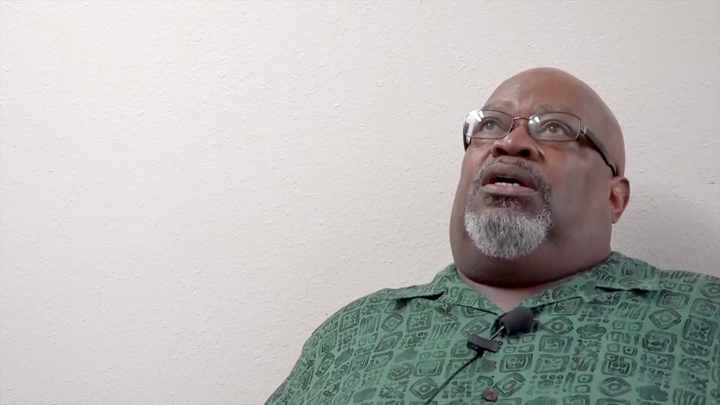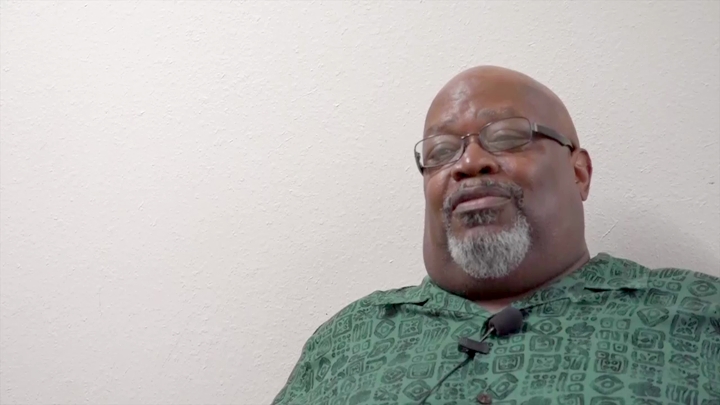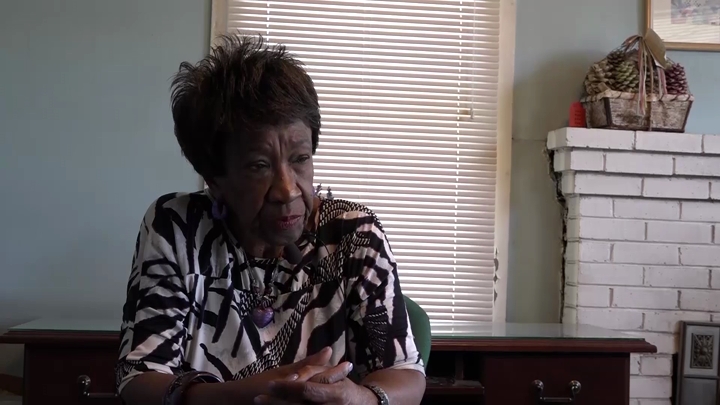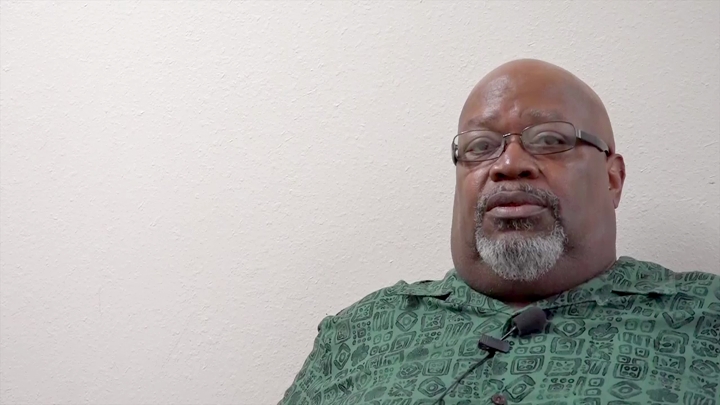Cross / After Integration At The High School
sign up or sign in to add/edit transcript
Interviewer: In terms of the students after integration, from what I’ve understood talking to other people, it was the first year and it got better after that. Was that the experience that you saw as one of the principals? Cross: Yes, because at Dunbar we had won the state and when our students went to Lufkin High, football players, Gile Acrage was the coach and so he told them that you got to play by my system. So, our boys said we won the state, you ought to play by our system. He said no you got to learn my system. So, most of our athletes just didn’t go out for football and a few of them did and I was out there on the field one day. I was talking to Coach Ross and he said a certain player wouldn’t talk to the coach. If the coach wanted to tell this player something, he’d have to tell Coach Ross, and he’d tell the player. I said I couldn’t believe that’s happening, but most of the athletes didn’t play at all. They said we’re not playing. They could have won the state that next year just if Gile Acrage had let them play what—see, they were used to playing for position. You go up there and have a scrimmage and whoever won out in the scrimmage would get the start. They didn’t do that at the high school. Our kids were angry. They said we want to play for position, so we can be on the starting team. So, they didn’t do that, and a lot of our athletes didn’t never go out for football. That was sad because we had a good team. Interviewer: What about the teachers? How did integration go for the teachers? Cross: One thing about integration and teachers—like at my school, whatever the ratio was for the students, you’d have to have a ratio for the teachers. So, my ratios, if I’d have like sixty-forty, mine was pat. I would try to hire some blacks and they’d say you’ve got too many now, so you can’t hire anymore blacks, you got to hire some whites. Then all the white principals would say “I’m trying to find some qualified black teachers.” I said, “Qualified means if you have a teaching certificate, you’re qualified. What other qualifications are you looking for?” They didn’t say but they never had the quota where you have to have like seventy-five twenty-five. They never got to their quota of blacks of what they had to have. Never did. So, that was, you know, they would have to answer that because I said I could find plenty of black teachers. In fact, I found so many I said they won’t let me hire anymore because I would be way over the—so, I don’t know why I could find qualified black teachers and they couldn’t. They never had the quota the way it was supposed to be. So, I don’t know.
| Interview | Interview with Herbert Cross |
| Subjects | Discrimination or Segregation › Discrimination or Segregation at School |
| Education › Education and Integration | |
| Education › Extracurricular Activities › Sports | |
| Tags | Dunbar High School, Lufkin, TX |
| Lufkin High School, Lufkin, TX | |
| Acrage, Gile | |
| Football | |
| Athletics | |
| sign up or sign in to add/edit tags | |
| Interview date | 2016-06-20 |
| Interview source | CRBB Summer 2016 |
| Interviewees | Cross, Herbert |
| Interviewers | May, Meredith |
| Duration | 00:04:08 |
| Citation | "After Integration At The High School," from Herbert Cross oral history interview with Meredith May, June 20, 2016, Lufkin, TX, Civil Rights in Black and Brown Interview Database, https://crbb.tcu.edu/clips/2410/after-integration-at-the-high-school, accessed February 18, 2026 |






